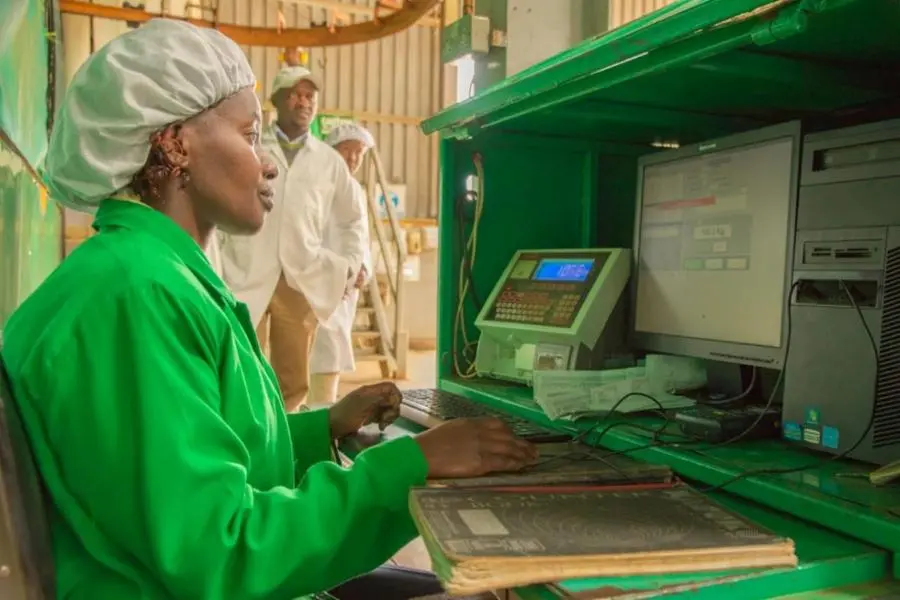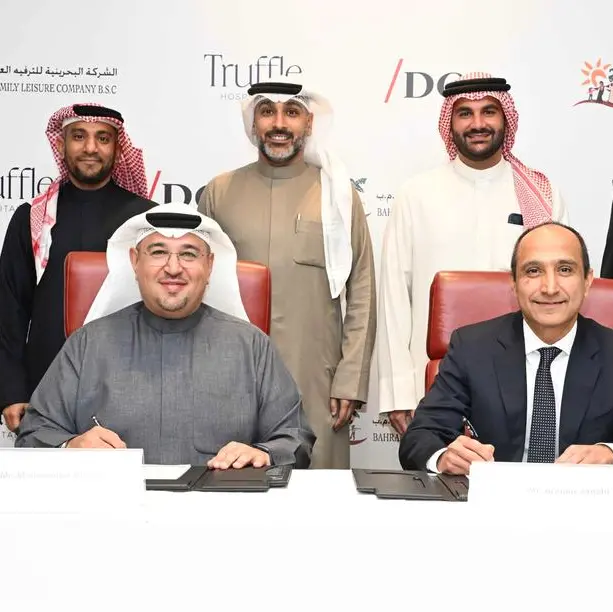PHOTO
NAIROBI, Kenya: -/African Media Agency(AMA)/- How do you bring consistency and improve decision-making at an organisation where more than 50 factories each operate on their own disparate systems with little to no integration? For one of the largest tea-producing organisations in the world, the answer rested in a total transformation of its end-to-end systems.
Over 600,000 smallholder tea farmers affiliated to the Kenya Tea Development Agency (KTDA) are reaping the harvest of a silent technological rollout that has streamlined the operations of their factories, making the tea business more efficient and technology driven.
Boost to payment efficiency, analytical insights
The deployment of SAP by KTDA and its managed factories has provided analytical tools that are used for better decision making while making payment for farmers’ green leaf efficient and quick. It has also drastically improved payment processing and enhanced end-to-end visibility for better controls and safeguards.
“We wanted a solution to bring all our factories into a single system that would improve every aspect of our operations, from production planning and quality management to sales, distribution and payroll,” says KTDA CEO Wilson Muthaura. “This was no mean feat since there are more than 600,000 farmers paid every month for green leaf supplied as well as over 10,000 employees working across the organisation. However, following this successful rollout, all farmers are now paid through our SAP system, reducing processing time by more than 80 per cent.”
KTDA Holdings Ltd is a wholly owned farmers company which has invested in various subsidiary companies along the tea value chain in Kenya. Through the KTDA Management Services company, the operations on 71 factories are seamlessly managed and SAP has come in handy in enhancing operational efficiencies with the aim of increasing transparency and profitability in the businesses.
The Agency has seven subsidiaries and a Foundation providing specialised services across the tea value chain, including factory management, engineering, insurance, tea trading and warehousing, credit provision and power production.
In late 2021, KTDA revised its monthly green leaf payment timelines to the first week of the following month. Payments for deliveries had previously been made on the third week of the following month. The change, aided by efficient payment processing through SAP, translated to faster access of farmers’ cash to meet their daily needs and align the payment to farmers’ monthly obligations.
The system also allows the Agency to easily incorporate other items like loans and inputs (like fertilizer) issued to the payment process allowing for easy and seamless recoveries.
Martin Mwarangu, Group General Manager for ICT Services at KTDA, says: “We worked with experienced SAP partner, OneConnect Technologies, to implement SAP ERP Central Component and Business Intelligence, covering end-to-end processes across KDTA's operations.”
System unlocks benefits across value chain
Besides payment processing, different modules of SAP have delivered multiple benefits including production planning and management and a full visibility of tea sales.
“SAP has digitally transformed the KTDA business and made it technologically ready to adopt any future solutions that would further enhance business efficiencies. The wealth of data generated is important in decision making and forecasting,” says KTDA Management Services Managing Director Julius Onguso.
Plant maintenance has also been enhanced with a solution that ensures proper maintenance and provides greater visibility over costs associated with equipment. In addition, all transactions are now updated to general ledgers and relevant cost/profit centres in real time, giving the finance team full visibility over the organisation’s operations.
The Agency has also rolled out a sales and distribution module that allows all tea selling processes to be done on one system; from raising sales orders; tea dispatch and revenue management.
The SAP solution generates a wealth of data and has embedded business analytical tools that generate reports and dashboards extensively used by decision makers to glean insights and make better decisions for the business.
Thirty-two KTDA-managed factories are currently running on the SAP solution, making reporting and intercompany integration easier. The deployment of SAP also means there is a uniformity and consistency in how each of the factories are run. The Agency is working to have all other factories deploy the solution for group-wide benefit.
Hardeep Sound, Regional Sales Director for East Africa at SAP, adds: “Facing inefficiency and a lack of visibility over critical business processes, KTDA embraced the benefits of the latest technology to completely transform their end-to-end business functions. As KTDA continues to play a vital role in in the broader Kenyan economy as well as directly in the lives of more than smallholder farmers, having real-time visibility over the entire organisation’s processes will bring vast improvements to its operations benefitting all stakeholders.”
-Ends-
Distributed by African Media Agency (AMA) on behalf of SAP Africa.
Visit the SAP News Center. Follow SAP on Twitter at @SAPNews.
About SAP
SAP’s strategy is to help every business run as an intelligent, sustainable enterprise. As a market leader in enterprise application software, we help companies of all sizes and in all industries run at their best: SAP customers generate 87% of total global commerce. Our machine learning, Internet of Things (IoT), and advanced analytics technologies help turn customers’ businesses into intelligent enterprises. SAP helps give people and organizations deep business insight and fosters collaboration that helps them stay ahead of their competition. We simplify technology for companies so they can consume our software the way they want – without disruption. Our end-to-end suite of applications and services enables business and public customers across 25 industries globally to operate profitably, adapt continuously, and make a difference. With a global network of customers, partners, employees, and thought leaders, SAP helps the world run better and improve people’s lives. For more information, visit www.sap.com.
This document contains forward-looking statements, which are predictions, projections, or other statements about future events. These statements are based on current expectations, forecasts, and assumptions that are subject to risks and uncertainties that could cause actual results and outcomes to materially differ. Additional information regarding these risks and uncertainties may be found in our filings with the Securities and Exchange Commission, including but not limited to the risk factors section of SAP’s 2021 Annual Report on Form 20-F.
© 2022 SAP SE. All rights reserved.
SAP and other SAP products and services mentioned herein as well as their respective logos are trademarks or registered trademarks of SAP SE in Germany and other countries. Please see https://www.sap.com/copyright for additional trademark information and notices.
For more information, press only:
Delia Sieff, SAP Africa
delia.sieff@sap.com
SAP Press Room; press@sap.com




















